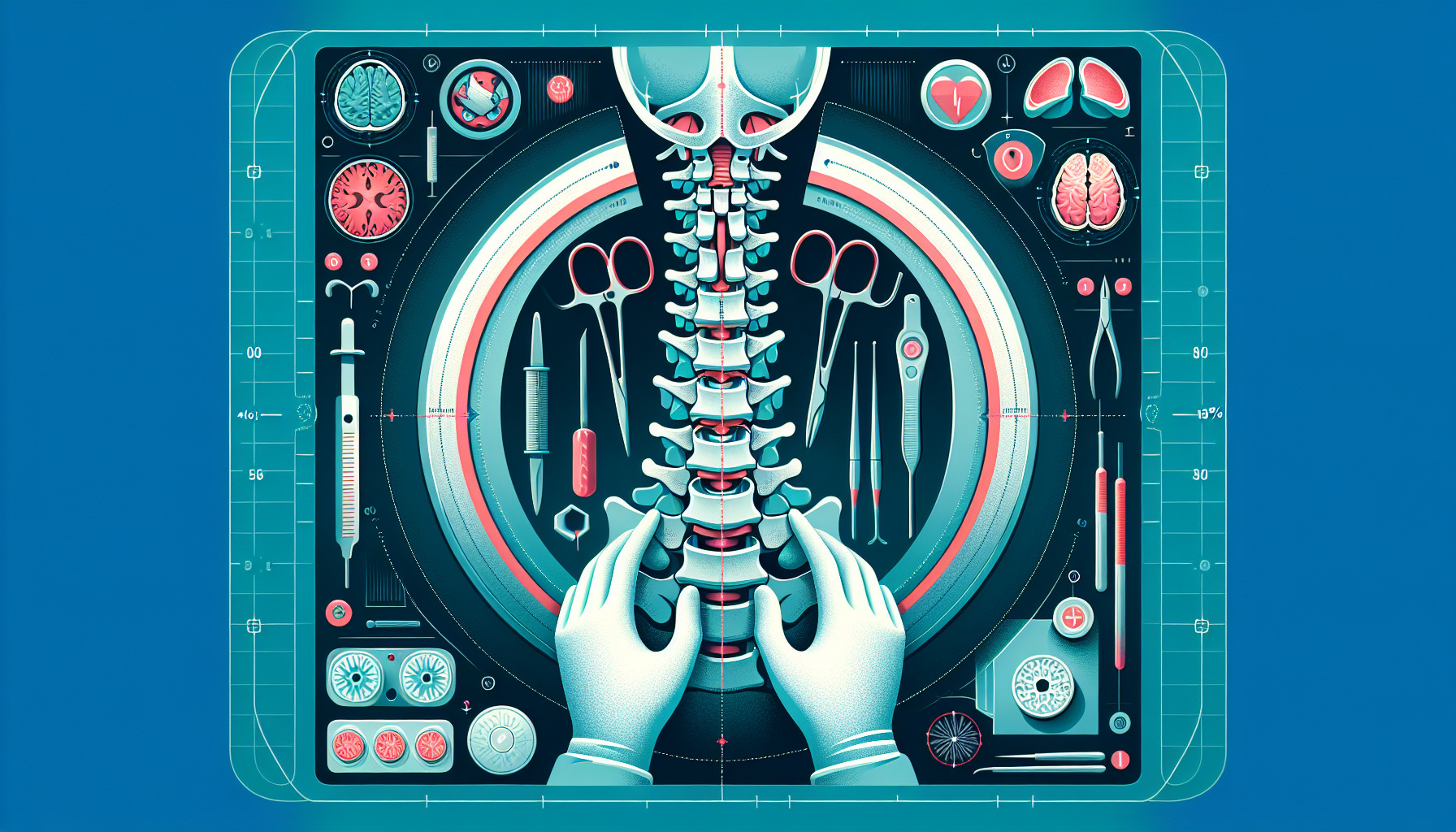Our Summary
This research paper highlights three main issues that often lead to complications in surgically treating adult spinal deformity.
Firstly, it’s crucial to carefully choose the right patients for surgery. Not all cases may be suitable for surgical intervention, and making the wrong choice could lead to complications.
Secondly, the paper emphasizes the need to address any other health problems that could negatively affect the surgery’s outcome. This means helping patients quit smoking, ensuring they have enough vitamin D, improving their overall nutrition, and strengthening their bone health.
Lastly, the researchers stress the importance of tailoring the surgery to each patient’s specific needs. This includes setting achievable alignment goals for the spine and using techniques that prevent further deformities or failures at the top of the spine.
By outlining these three common problems, the paper hopes to guide medical professionals in avoiding them, thus reducing the risk of complications in spinal deformity surgeries.
FAQs
- What are the three major pitfalls to avoid in the surgical management of adult spinal deformity?
- How can the optimization of modifiable medical issues like smoking and vitamin D deficiency affect the outcome of spinal fusion surgery?
- What are some surgical factors that need to be optimized to avoid complications in the treatment of adult spinal deformity?
Doctor’s Tip
One helpful tip a doctor might tell a patient about spinal fusion is to follow all pre-operative instructions carefully, including quitting smoking if applicable, ensuring adequate vitamin D levels, maintaining good nutrition, and discussing any concerns about bone quality with your healthcare provider. By addressing these modifiable factors before surgery, you can help improve your chances of a successful outcome and minimize the risk of complications.
Suitable For
Patients who are typically recommended spinal fusion surgery are those with severe spinal deformities, such as scoliosis or kyphosis, that are causing pain, neurological symptoms, or functional impairment. Other indications for spinal fusion may include degenerative disc disease, spinal stenosis, spondylolisthesis, or spinal fractures. The decision to recommend spinal fusion is usually based on the patient’s symptoms, physical exam findings, imaging studies, and response to conservative treatments. It is important for patients to have realistic expectations about the potential risks and benefits of spinal fusion surgery before undergoing the procedure.
Timeline
Before spinal fusion:
- Patient presents with symptoms of back pain, sciatica, numbness/weakness in the legs, or other neurological symptoms.
- Patient undergoes diagnostic tests such as X-rays, MRI, or CT scans to determine the extent of spinal deformity or damage.
- Patient is evaluated by a spine specialist to determine if spinal fusion surgery is indicated based on the severity of symptoms and extent of spinal deformity.
After spinal fusion:
- Patient undergoes pre-operative testing and preparation for surgery, including optimizing medical issues such as smoking cessation and improving nutritional status.
- Patient undergoes spinal fusion surgery, where the vertebrae are fused together to stabilize the spine and alleviate symptoms.
- Patient undergoes post-operative rehabilitation and physical therapy to regain strength and mobility in the spine.
- Patient experiences a gradual improvement in symptoms over time as the spine heals and stabilizes.
- Patient follows up with their spine specialist for long-term monitoring and management of any potential complications.
What to Ask Your Doctor
- Am I a suitable candidate for spinal fusion surgery?
- What are the potential risks and complications associated with spinal fusion surgery?
- How long is the recovery period after spinal fusion surgery?
- What type of spinal fusion technique will be used in my case?
- What are the success rates of spinal fusion surgery for my specific condition?
- Will I need physical therapy or rehabilitation after surgery?
- How will spinal fusion surgery affect my daily activities and quality of life?
- Are there any alternative treatments to spinal fusion that I should consider?
- What is the long-term outlook for my condition after spinal fusion surgery?
- How often will I need to follow up with you after the surgery?
Reference
Authors: Wu HH, Kelly M, Neuman B, Protopsaltis T, Hershman S. Journal: Instr Course Lect. 2024;73:641-649. PMID: 38090930
